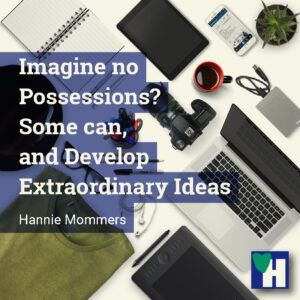
On a website, I read a very negative story from someone who accused John Lennon of being unrealistic. Imagine no possessions? That person couldn’t imagine life without possessions being possible and “John Lennon was naive anyway to think it was possible”.
Others have an open mind and come up with surprising solutions. Such a person is the German-Dutch architect Thomas Rau.
I first heard about his ideas during a study day at the Mosa ceramic factories in Maastricht, the Netherlands. Mosa is a company that is already advanced in shaping the circular economy. Rau goes one step further than the circular economy. I’ll explain how in this article.
Table of contents
Imagine no possessions
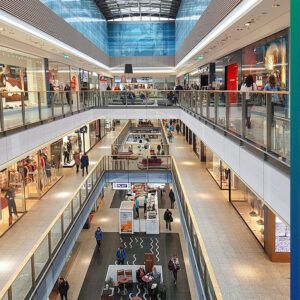
When you move to another city, it is practical to put all your stuff in a truck in order to drive to your new place only once. But you don’t buy a truck to do that, because you don’t move every day, do you? So you rent a truck. With or without some people who can lift heavyweights.
When agriculture was developing, farmers considered methods to share costs with their neighbors in order to organize things better and to get a better profit. So they started institutions of collective action (ICA’s), better known as cooperatives. There are still ICA’s in rural regions. Cooperative banks also originated from farmers’ collective initiatives.
With the rise of globalization in the slipstream of capitalism, individual ownership and consumerism became the custom. As a consequence, we all possess our own home, our own garden, our own garden equipment, our own dishwasher, our own car, etcetera.
Garbage dumps full of good stuff
On special occasions, we give each other things, sometimes without even knowing whether what we give is to the liking of the receiver. Or whether he or she needs it. After a short period of time, some of these things, when they are no longer wanted or useful, or even never left the cupboard, the cellar, or the attic, are thrown away.
Manufacturers deliberately create goods with a limited lifespan. Replacing parts is made more difficult by sealed enclosures, and in any case, labor is more expensive than replacement. So, if something is broken it is cheaper to renew it than to have it repaired.
Thomas Rau had to bypass a cherry picker in the airport because the lamps in the ceiling were replaced. He stopped and looked at it and noticed that all lamps were replaced, not just the broken ones. This was one of the triggers for his idea that things could go be done differently.
I need light, not lamps
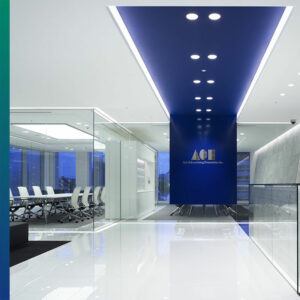
Rau was already interested in durability and sustainability, and he thought it was crazy that it was cheaper to replace all lamps all at once, long before they would actually break down. What would be needed to lengthen the lifespan of the lamps?
When he was in the process of designing his new office in Amsterdam he asked someone from Philips, the lamp factory in Eindhoven, to come and talk about light. What he proposed to Philips was the following: “I need light in my office, good light so my fellow workers don’t spoil their eyes while designing”.
Philips wanted to offer a lighting plan with fixtures and lamps, but he said he had a different idea. What if Philips provided the light. “I don’t care if you need lamps for that or electricity. That technical part is your responsibility. I just want light. I don’t need any fixtures or lamps.”
After the initial confusion, Philips agreed. And what happened? Now that the ownership remained with Philips and they were also responsible for the electricity bill, the lamps got a longer life span and became more economical.

Raw materials are becoming scarcer
Mosa Ceramics in Maastricht has a similar concept. They make ceramic tiles for bathrooms and toilets, of which they remain the owners. The tiles are mounted in such a fashion that during a renovation the tiles can be removed without breaking and, as a consequence, can be used again somewhere else.
When Thomas Rau delivers his design for a building, he always includes a materials passport. In this way, the building contractors know where their materials are, and they remain responsible for them.
Everyone benefits
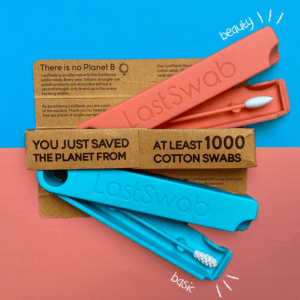
Currently, rich people can afford A+++ devices, which means they have a lower energy bill. Poor people buy cheaper appliances but have the disadvantage of a higher energy bill for a device that is also more likely to break sooner.
In Rau’s idea, the devices remain the property of the production company and people only pay for the function. We don’t necessarily need a refrigerator, but we want our food to last as long as possible. If that has to be done with a refrigerator, so be it. The production company then has an interest in making its devices as sustainable as possible.
It is a kind of lease construction that enables poor people to afford durable and sustainable devices. The longer the device lasts, and the lower the energy and maintenance costs, the more profit a production company can make with this lease construction.
Moreover, it is in the interest of the company to make their goods in such a way that the raw materials can be recovered after the device has been replaced.
Imagine you lease your clothes
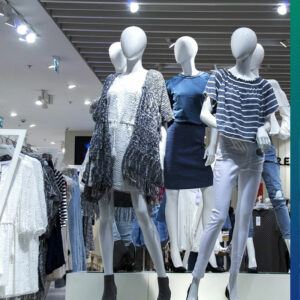
Of course, this lease construction comes with substantial challenges. How are prices fixed? Most customers are very careful with their devices. When the devices are not yours, do you get sloppier?
This makes it important to also consider incentives for customers to care for the devices they lease. For instance, with a graduated calculation system. The longer a device lasts, the lower the lease price gets.
The next challenge is how to deal with the never-ending consumer obsession with the latest design. This obsession has the fashion industry and young people firmly and completely in their grasp.
This shows how beautiful Thomas Rau’s idea is. When you have to lease your clothes, a whole new concept of clothes fashion and clothes design and production will emerge. It’s a concept with many practical advantages. Let’s try it!
Have you ever heard of this idea and what do you think of it? Let us know in the comment box below.
Some of the links are affiliate links. As an affiliate associate, we earn a commission when you purchase any of the products offered through the shared links at no extra cost for you. This helps us maintain this website.

Very interesting article and I certainly love the sustainability of these ideas. Wouldn’t it be great if we could convince our big companies here in North America to change their business models to sustainable ones such as these?
Through spending time on our sailboat during the summers we have learned how much happier we can be by having fewer possessions.
What do I mean?
Well, when we live aboard we have only 26″ for everything we need. That is food, clothing, dishes, pots, books, games, medicines, or anything we think we may need.
This forces us to really think about the items we take aboard and we try to ensure things have more than one purpose if possible, with the exception of food.
The biggest thing I learned is that we enjoy a much happier and more fun quality of life when we are not chained to heavy maintenance of things.
Currently, we are going through our things and determining which we really need to hang onto. The rest will either be given to the kids or given to second-hand shops.
Thanks for really getting me thinking again. Take care
It’s beautiful to have such experiences, isn’t it, Deb? We had a similar one when we traveled at the south coast of Spain to look for our dream house. All we needed during that year was in our car. Of course, we missed some things at times but overall we could excellent live without all the stuff that normally surrounds us. It was a real eye-opener.
I should definitely follow your example and rumble through our stuff again. Because as soon as we settled down the culmination started all over again. And we don’t even buy that much!
As far as the companies are concerned, you know what is needed: critical consumers. I am reading Don Norman’s book Emotional Design and he expresses his amazement that we as consumers always think we are too stupid for a device if it doesn’t work. He states that it is usually bad design and we shouldn’t put up with it.
This is similar to demanding more sustainability in our goods. This doesn’t make life any easier, I know. For instance, I am looking for another company to order my Solgar supplements. Solgar is a sustainable brand yet unfortunately has outsourced its sales process. I have tried several webshops so far but all package their goods in lots of plastic. On top of that, when I received my ordered vitamin D3 yesterday, I got a ‘gift’ as well totally wrapped in plastic and made of plastic. So much for my efforts to reduce single-use plastic. 🙁
I know it’s a form of customer loyalty to give your customers small presents. It totally backfired in this case because I am going to look for another supplier.
Great that you liked the article, Deb, thanks for your comment and you take care too. 🙂
What a refreshing post to read.
How much simpler life would be without all material possessions. As you mentioned, most of the things we acquire are useless pieces of stuff that we don’t use, leave or throw away!
The world revolves around money and greed, this is a problem the planet faces. Our climate and oceans are suffering because of this.
If we all had a simpler, smaller sense of community life would be much more tranquil.
It’s down to the individual as to whether they choose the right path.
Great read, thank you!
Thanks, LJ. Things are changing already. It’s good to see that especially a lot of young people are much more into the share-economy than the older generation. We don’t have to own videos or DVDs anymore but watch movies on Netflix or another network. We don’t have to buy CDs but listen to music on Spotify.
I am holding on to these changes. Eventually, we will have to change because we are using up the raw materials and exhausting the earth. Willingly or unwillingly, that change will continue. In my view, we can better do it willingly. 🙂
Thanks for your comment and support. Take care.
We come into this world with nothing, and we will leave it with nothing! And yet while we are here we want to possess everything! Haha
Yes, this does seem a little insane, doesn’t it?
When I was young, I always thought it was crazy that every household had its own lawnmowers. We all used them once a week in the summer when the grass was growing quickly, and only once every 2 to 4 weeks in the winter when the grass grew more slowly. So, for 99% of the time, they were idol and just taking up room in the garage.
I believed a much better idea would have been to have communal mowers. However, my parents did not think this was such a good idea. I’m not sure why…. it wasn’t because we mistrusted the neighbors, but maybe we didn’t know them well enough to believe they would take good care of the equipment.
The situation has changed in recent times with most households, where I grew up, now employing contractors to take care of their lawns and gardens. This is a much more efficient use of resources.
For equipment, vehicles, and other large items that we don’t use often, I think sharing and leasing is a good idea. However, for clothes, especially underwear, I would still like to own my own.
I love the example you give of Phillips investing in better quality lights because they become responsible for the hardware. Awesome!
Thanks for sharing 🙂
Maybe your parents were afraid of discussions. To some extent, I can relate to that. When you look at community meetings where everyone has shared interests, it is still difficult to reach an agreement on measures to be taken. And the possibility of equipment with poor quality is still there. Community members are still consumers.
That’s what I like most about Rau’s ideas. Not the consumers are responsible for the products but the producers are. In your example of the lawnmowers there could be one mower in the community, everyone pays a little amount, and the owner of the lawnmower (the producer) makes sure it is working or replaces it when it doesn’t anymore.
That is also the brilliance of the light that Philips delivers in Rau’s office. They are not only responsible for the hardware but also have to pay the electricity bill. Which was the main reason the costs of the electricity went down! When Philips has to change the lights they can divide the old stuff into the raw materials it was build from and use that again in new devices.
And you’re right, when people hire equipment or contractors who bring their own stuff with them, it’s a good use of resources as well.
Thanks for your comment, Andrew, and take care.
Hi Hannie,
The idea of leasing instead of buying is not new for everyone, but it seems that people still prefer buying in the end. I changed my purchasing habit a few years ago because I moved from my hometown to another city, and there were a few moves in the following years. I just realized how many things that I purchased but I didn’t use or only use a few times, which means I didn’t need them in the first place. Since that moment, I have changed a lot. I use other ways to achieve a less-possession lifestyle, so I like to share with you & your readers.
I believe people will know how powerful the above methods are once they implement them in their lives.
Cheers,
Matt
Marvelous, Matt, you sure put a lot of thought into it already. I love your suggestions. They are easy to apply and make a huge difference.
By the way, there is another advantage if you leave items in an online shopping cart. When you decide after 3 days you need or want it anyway, chances are high that by then you have received a coupon from the business involved for a discount on the product. 🙂
Thanks for your reaction and take care.